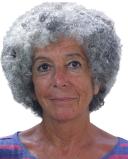Depression
Anxiety Disorder? Clinical Depression?
Or fearful, bullied, or lost?
Posted November 14, 2019 Reviewed by Hara Estroff Marano

Candace is the neighbour of a friend. She can’t get out of her top-floor flat much, because of mental demons and physical constraints. She manages to injure herself quite a lot, whether through falls or cuts or burning herself on the rare occasions she cooks, because she suddenly finds herself "somewhere else" and loses track of what she is doing.
She can’t walk very well because of an accident that ended her working days as an exhibition carpenter. She forgets to eat; she struggles to sleep, and out of the blue, she can be floored by flashbacks from her past.
“It’s all just part of this horrible illness,” she sighs, acceptingly.
Illness? Candace was neglected as a child. When her mother caught her in a lie, Candace was beaten with a belt every day after school for a month (she was eight at the time). She had criticisms leveled at her nonstop, and any toys she was given were taken from her, for one "good reason" or another. She didn’t get enough to eat. Sometimes she was locked in the house alone, long before she reached her teens.
Unsurprisingly, she escaped home as soon as she was old enough to, only to fall into one abusive relationship after another. At work, she was literally left to carry more of the load than anyone else. It was just as it had always been—until she had the accident that finally shattered her resilience. Her whole life fell apart and, eventually, she was diagnosed with PTSD.
Illness? In the recently published book, Drop the Disorder!, in which contributors challenge the hallowed status given to psychiatric diagnoses, psychologist Lucy Johnstone puts it succinctly: The question that needs answering in such cases is not "What’s wrong with you?" but "What has happened to you?" "How did what happened to you affect you?" "What sense did you make of it?" "What did you have to do to survive?"1
Because of what happened to Candace, she grew up thinking she could never be good enough and that she wasn’t worthy of love and respect, so she had to do three times as much as the next person at work, didn’t deserve the nourishment of good food, and took it as normal to be treated harshly by all in her life. As Johnstone says, such patterns are "organized by meaning, not organized by biology."
This resonates strongly with the questions that human givens therapists are taught to address with every client—and which add another dimension: What is not working in your life? What needs are not being met or are being met in unwittingly unhealthy ways, giving rise to ‘symptoms’? What has been keeping it this way and how can we change it? Effective psychotherapy training gives therapists the information and skills they need to teach clients for positive change to happen, with no need for diagnoses.
In the December issue of Human Givens Journal, therapist Pamela Woodford describes being presented with a thick file in which previous agencies had suggested a range of suggested diagnoses for the new young client she was yet to meet—a withdrawn 15-year-old, so far threatened with labels of autism, bipolar disorder, and depression, and feeling terrible about herself.
Though the thick file sat on the desk, Pamela refused even to open it, informing the girl of that fact, and instead concentrated on the person in front of her. After listening, Pamela said, "What I see and hear is that you are a creative free spirit and you are quite shy, which free spirits often are. I see a young girl who doesn’t yet know how she can express her beautiful personality and gentle nature." And the light, at last, came into that young girl’s eyes.2
Diagnoses are exclusive rather than inclusive—and they skate over the awkward bits. I had one client diagnosed as having paranoid schizophrenia without the paranoia. Another asked me anxiously if I thought he had attention deficit disorder (ADD). "Do you think you have ADD?" I asked.
This 40-year-old man anxiously reeled off some examples of not being focused enough or able to concentrate, and I reminded him of the many times he had previously described where clearly he had focused and concentrated intently. It took him by surprise, and we ended up looking at why he sometimes found it hard to stay focused and finding ways to manage that. I think he went away with something a lot more useful than an acronym.
Diagnoses reflect outcomes; they don’t identify causes.
References
1) Watson, J (ed) (2019). Drop the Disorder! Challenging the culture of psychiatric diagnosis. PCCS Books, Monmouth.
2) Woodford, P (2019). Top tips for counselling in secondary education. Human Givens Journal, 26, 2, 16–21.




